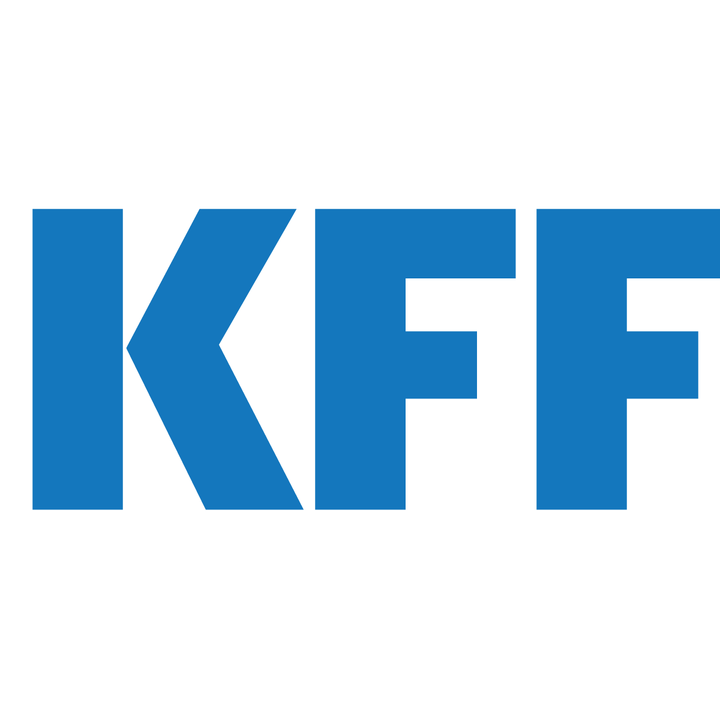The Tug-of-War Over Healthcare: AI's Promise and Medicaid's Peril
January 20, 2025, 3:59 am

Location: United States, District of Columbia, Washington
Employees: 51-200
Founded date: 2009

Location: United States, California, San Francisco
Employees: 201-500
Founded date: 1991
In the realm of healthcare, two powerful forces are at play: the rise of artificial intelligence (AI) and the looming threat to Medicaid. Both are reshaping the landscape, but not without challenges. The promise of AI is enticing, yet it comes with a hefty price tag. Meanwhile, Medicaid faces potential cuts that could leave millions vulnerable.
AI in healthcare is like a double-edged sword. On one side, it offers the potential for improved patient care and efficiency. Algorithms can predict patient risks, assist in diagnoses, and streamline administrative tasks. Yet, the other side reveals a stark reality: these technologies require significant human oversight. The dream of cost-saving automation is clouded by the need for skilled professionals to manage and validate these systems.
The healthcare industry is buzzing with excitement over AI. Startups are popping up, and investment is flowing. Yet, the question remains: can we trust these tools? The FDA has approved nearly a thousand AI products, but the evaluation process is murky. Hospitals lack the resources to rigorously test these algorithms. The average doctor doesn’t have access to supercomputers or the expertise to sift through complex data.
Errors in AI can be catastrophic. A single missed detail in a patient’s summary can lead to dire consequences. A study at Stanford revealed that even the best AI models had a 35% error rate in summarizing medical histories. In medicine, precision is paramount. The stakes are high, and the margin for error is razor-thin.
The lack of standards compounds the problem. Experts lament the absence of a framework to evaluate AI tools. Without benchmarks, hospitals are left to navigate a chaotic landscape. They are forced to invest heavily in auditing and monitoring, which strains already tight budgets. The irony is palpable: to save money, healthcare systems may need to spend more.
Meanwhile, the political landscape is shifting. Medicaid, a lifeline for millions, is under threat. With the return of a familiar face in politics, the GOP is eyeing cuts to federal entitlement programs. Medicaid, which has provided coverage for low-income individuals for 60 years, is now a target. The proposed changes could reshape who qualifies for coverage and how the program operates.
The unwinding of pandemic-era protections has already left millions without coverage. The future looks grim. Advocates fear that cuts will exacerbate the crisis, leaving vulnerable populations without access to necessary care. The stakes are high, and the implications are profound.
Republican leaders argue that Medicaid needs reform to reduce federal debt. They propose shifting to block grants, which would cap federal funding and give states more control. This approach could lead to significant reductions in coverage and services. Critics warn that such changes would disproportionately affect the most vulnerable.
The GOP’s strategy includes lowering federal matching funds and imposing work requirements. These measures could create barriers for those seeking coverage. Many Medicaid enrollees already work or care for family members. Adding red tape could push more people out of the program.
As the political winds shift, powerful entities are poised to push back. State governments, healthcare providers, and advocates for low-income individuals are rallying to protect Medicaid. They recognize the program’s importance and the potential fallout from drastic cuts.
The tug-of-war over healthcare is intensifying. On one side, the promise of AI beckons with the allure of efficiency and innovation. On the other, the threat to Medicaid looms large, threatening to unravel decades of progress in healthcare access.
The intersection of technology and policy is fraught with challenges. AI may hold the key to revolutionizing healthcare, but it requires careful implementation and oversight. Without proper standards and resources, the risks may outweigh the benefits.
Simultaneously, the fight for Medicaid is a battle for the soul of healthcare in America. As policymakers consider cuts, the voices of advocates and affected individuals must be heard. The stakes are too high to ignore.
In this complex landscape, the future of healthcare hangs in the balance. Will AI fulfill its promise, or will it become a costly burden? Will Medicaid survive the political onslaught, or will millions be left without a safety net?
The answers remain uncertain, but one thing is clear: the fight for healthcare is far from over. As we navigate these turbulent waters, the need for thoughtful dialogue and collaboration has never been more critical. The health of our nation depends on it.
In the end, healthcare is not just about technology or policy; it’s about people. It’s about ensuring that everyone has access to the care they need. As we stand at this crossroads, let us choose wisely. The future of healthcare is in our hands.
AI in healthcare is like a double-edged sword. On one side, it offers the potential for improved patient care and efficiency. Algorithms can predict patient risks, assist in diagnoses, and streamline administrative tasks. Yet, the other side reveals a stark reality: these technologies require significant human oversight. The dream of cost-saving automation is clouded by the need for skilled professionals to manage and validate these systems.
The healthcare industry is buzzing with excitement over AI. Startups are popping up, and investment is flowing. Yet, the question remains: can we trust these tools? The FDA has approved nearly a thousand AI products, but the evaluation process is murky. Hospitals lack the resources to rigorously test these algorithms. The average doctor doesn’t have access to supercomputers or the expertise to sift through complex data.
Errors in AI can be catastrophic. A single missed detail in a patient’s summary can lead to dire consequences. A study at Stanford revealed that even the best AI models had a 35% error rate in summarizing medical histories. In medicine, precision is paramount. The stakes are high, and the margin for error is razor-thin.
The lack of standards compounds the problem. Experts lament the absence of a framework to evaluate AI tools. Without benchmarks, hospitals are left to navigate a chaotic landscape. They are forced to invest heavily in auditing and monitoring, which strains already tight budgets. The irony is palpable: to save money, healthcare systems may need to spend more.
Meanwhile, the political landscape is shifting. Medicaid, a lifeline for millions, is under threat. With the return of a familiar face in politics, the GOP is eyeing cuts to federal entitlement programs. Medicaid, which has provided coverage for low-income individuals for 60 years, is now a target. The proposed changes could reshape who qualifies for coverage and how the program operates.
The unwinding of pandemic-era protections has already left millions without coverage. The future looks grim. Advocates fear that cuts will exacerbate the crisis, leaving vulnerable populations without access to necessary care. The stakes are high, and the implications are profound.
Republican leaders argue that Medicaid needs reform to reduce federal debt. They propose shifting to block grants, which would cap federal funding and give states more control. This approach could lead to significant reductions in coverage and services. Critics warn that such changes would disproportionately affect the most vulnerable.
The GOP’s strategy includes lowering federal matching funds and imposing work requirements. These measures could create barriers for those seeking coverage. Many Medicaid enrollees already work or care for family members. Adding red tape could push more people out of the program.
As the political winds shift, powerful entities are poised to push back. State governments, healthcare providers, and advocates for low-income individuals are rallying to protect Medicaid. They recognize the program’s importance and the potential fallout from drastic cuts.
The tug-of-war over healthcare is intensifying. On one side, the promise of AI beckons with the allure of efficiency and innovation. On the other, the threat to Medicaid looms large, threatening to unravel decades of progress in healthcare access.
The intersection of technology and policy is fraught with challenges. AI may hold the key to revolutionizing healthcare, but it requires careful implementation and oversight. Without proper standards and resources, the risks may outweigh the benefits.
Simultaneously, the fight for Medicaid is a battle for the soul of healthcare in America. As policymakers consider cuts, the voices of advocates and affected individuals must be heard. The stakes are too high to ignore.
In this complex landscape, the future of healthcare hangs in the balance. Will AI fulfill its promise, or will it become a costly burden? Will Medicaid survive the political onslaught, or will millions be left without a safety net?
The answers remain uncertain, but one thing is clear: the fight for healthcare is far from over. As we navigate these turbulent waters, the need for thoughtful dialogue and collaboration has never been more critical. The health of our nation depends on it.
In the end, healthcare is not just about technology or policy; it’s about people. It’s about ensuring that everyone has access to the care they need. As we stand at this crossroads, let us choose wisely. The future of healthcare is in our hands.